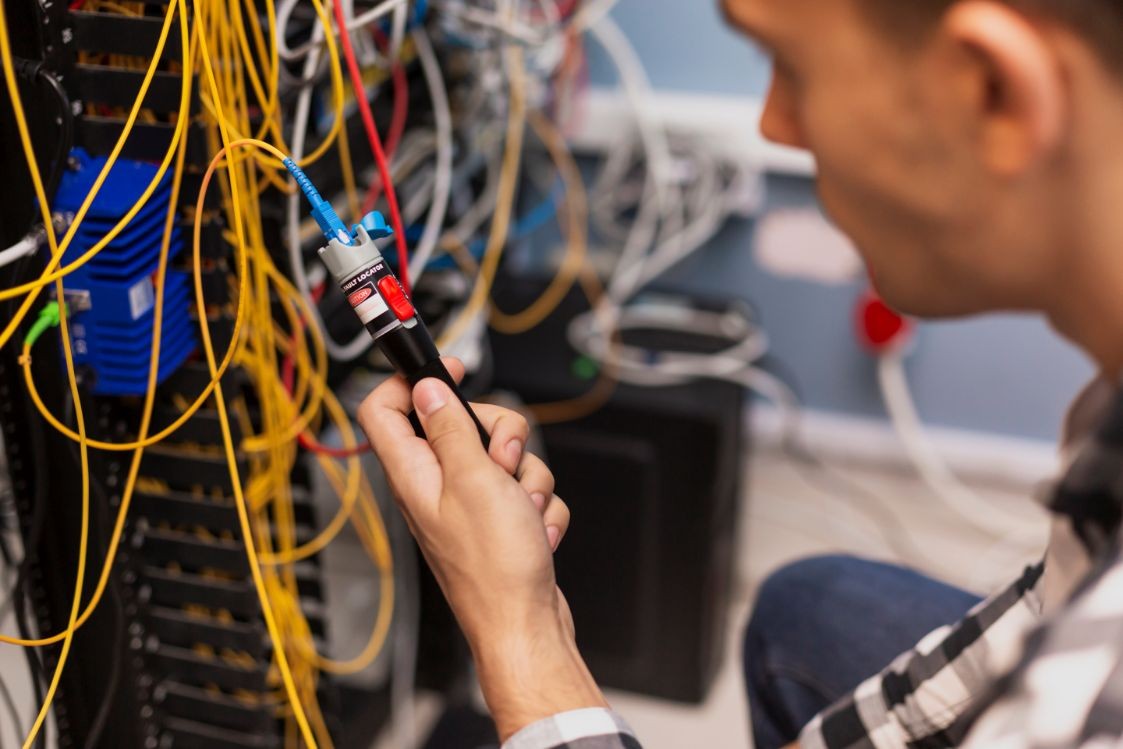
It is of paramount importance to select cables and wires of superior quality. Once installed, it would be an uphill task to replace the cables and wires in case of any defects or quality issues. The cables and wires of inferior quality would not be able to handle the high voltage, which in turn, may cause fire, short circuit, frequent power failure or similar mishaps.
Norden understands this very fact and put concerted and formulated efforts to ascertain the quality of each batch of cables and wires from our production centres. The Quality Assurance experts inspect the cables at each stage of manufacturing to preclude the possibility of anomalies or production flaws.
We have been delivering electrical components, systems, wires and cables to industries, commercial organizations, residential enclaves and individual houses. A holistic approach from our end has been pivotal in making our products top of their class.
A knowledgeable person with experience in electrical wiring and installation may be directed for procurement of cables and wires for your establishment. They should check the ratings and undertake a visual examination prior to selecting the components.
The points to check in the case of confirming the quality of cables and wires include:
Voltage – The voltage rating of the cable would be marked on the cable drum. The manufacturers affirm it after testing at the factory post-manufacture. With the details of insulation specification, you can assess whether the wire or cable is acceptable for your systems or not. A cable with higher ratings than the expected system voltage may be preferred. Never accept the one with lower voltage and insulation ratings than required.
Flexibility – More annealed conductors make the wire flexible. A flexible cable is definitely better than a solid cable. It would make the laying of cables easy, convenient and productive. Electricians can complete the task with more efficiency with the cables flexible to bend, turn and lay according to the design of the systems. Solid conductor cables may be cheaper than flexible cables. Still, it is cost-effective to go for flexible cables.
Power Handling Capacity – The power handling capacity of the cable should meet the industrial, commercial or residential requirements you have. A cable with a lower power handling capacity than needed can turn problematic. COX and Single Pair cables having single pair transmission will have reduced power handling capacity than CAT cables.
Durability and Strength – The durability and strength of the cables should be measured from the viewpoint of the electrical engineer or technician. The inspection should be based on the area where the cables would be used. For example, the cable that would be used in an industrial unit or factory should have thermal resistant and chemical resistant characteristics, as required in the subject environment. On the other hand, the cables that would be laid in the outdoor areas should be capable of withstanding adverse weather conditions, sand, dust, storm, sun, rain and moisture.
The Ability to Handle Overheating – Heavy electrical overload can lead to overheating of the cables. The cables and wires should handle the excessive electricity and should not pose a fire threat.
Quality of the Conducting Material Used – Both copper and aluminium cables and wires are available in the market. Copper wires are proven to perform better owing to the higher conductivity it has over aluminium. Even so, copper wires are not preferred for electrical transmission to longer distances. The expense of cabling to such a distance is what makes aluminium a better option in this scenario. The electrical supervisor and technician should decide on the conducting material based on the requirement at hand.
Insulation on the Cables and Wires –The insulation used on the cables and wires must be according to the ambient temperature in the premises and the specific industry where it is used. The insulation on the cables used in factories and production centres should be flame retardant or fire-resistant according to the temperature in the area. Cables of FR PVC are more useful in commercial and industrial centres than non-FR PVC.
Norden has been one of its kind manufacturing and supplying electrical cables and wires of superior quality for more than two decades. We offer a wide range of electrical systems, cables, wires, surveillance equipment and so on. All our products have been designed and manufactured under strict supervision, complying with the safety and quality standards.
We have been the leading entity providing excellent quality products across the world. Our superior quality products have been the route reason for the growth of Norden as the most preferred brand by varying industries, and business sectors.